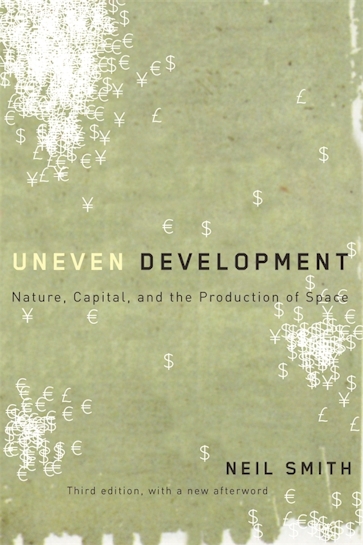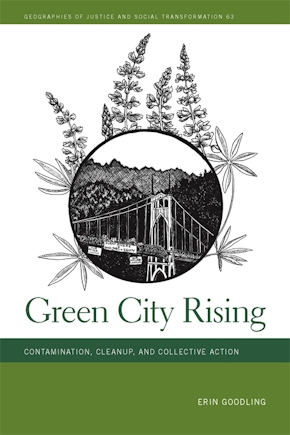Uneven Development
Nature, Capital, and the Production of Space
Title Details
Pages: 344
Illustrations: 1 figure
Trim size: 6.000in x 9.000in
Formats
Paperback
Pub Date: 12/15/2008
ISBN: 9-780-8203-3099-0
List Price: $28.95
Uneven Development
Nature, Capital, and the Production of Space
Skip to
- Description
- Reviews
Smith provides a brilliant formulation of how the production of a particular kind of nature and space under historical capitalism is essential to the unequal development of a landscape that integrates poverty with wealth, industrial urbanization with agricultural diminishment.
—Edward Said
Smith attempts no less than the integration of nature and space in the Marxian theory of capitalist development. The aim is to link two radical traditions—geographical and political—by theoretically illuminating the reality of uneven development. . . . Smith raises the level of the debate on the fundamental question by taking a definite stance. He improves the clarity even of the arguments made in disagreement with him. His book should be widely read, used, and discussed.
—Environment and Planning
This book is a classic. It deals with fundamental issues that simply do not go away, and demonstrates the enduring relevance of Marxist political economy.
—Noel Castree, coauthor of Spaces of Work
Uneven Development is one of the most important books of specifically geographical social theory to be written in the English language in the last 30 years. As rapid environmental change and attendant political divisions and struggles return to the fore (propelled in no small part by global climate change), this remains one of the few places to turn in social theory for a rigorous and insightful explanation.
—W. Scott Prudham, author of Knock on Wood: Nature as Commodity in Douglas-Fir Country



